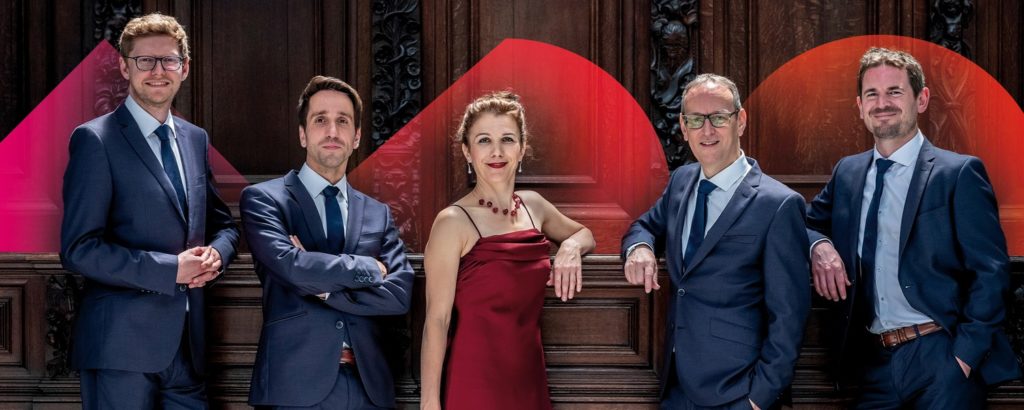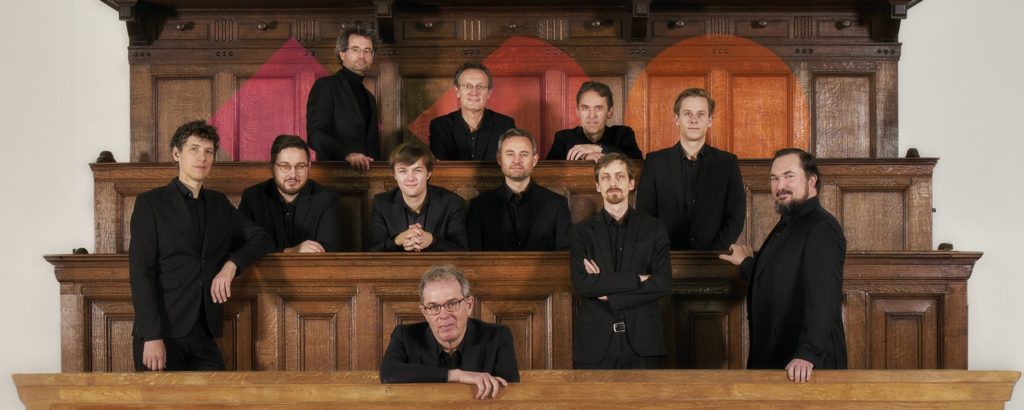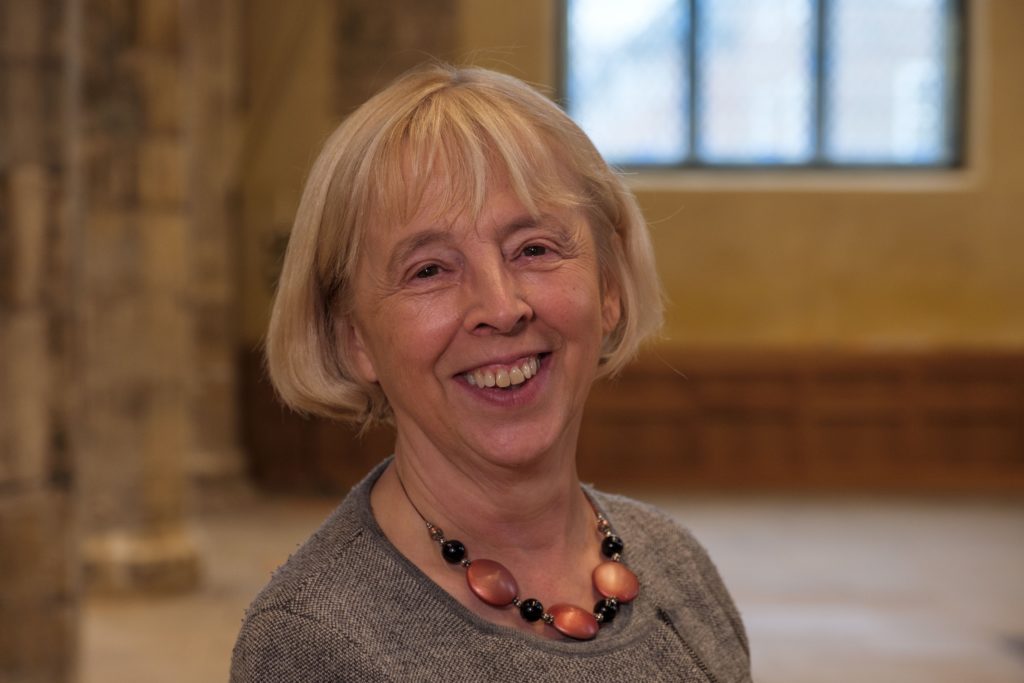
YORK Early Music Festival is launching a cultural partnership celebrating the musical heritage of Flanders at next month’s event.
Two world-class ensembles from northern Belgium, Utopia and Cappella Pratensis, will be performing in York as part of the new collaboration, organised in association with the Alamire Foundation, in Leuven, and AMUZ, a thriving arts centre in a disused baroque church and former Augustine monastery in Antwerp, with support from the Flanders government.
“The partnership celebrates the historic ties between York and Flanders from the medieval period, built on the trading of wool by enterprising merchants, through to the present day,” says festival director Dr Delma Tomlin, the first woman governor in the 660-year history of the Merchant Adventurers’ Hall.
“The York Early Music Festival has worked with our partners in Flanders for 25 years and we have a similar mind-set to supporting and developing Early Music ensembles, with a willingness to provide opportunities.
“We are particularly delighted to be part of this exciting new partnership, the beginning of a new collaboration with artists and colleagues based in Flanders in what is a considerable investment on their part. I would like to say a huge thank-you to the Almire Foundation, AMUZ and the Flanders Government for their support.
“This marks a very important moment in this city’s musical history and highlights York’s historical relationship with Flanders, giving us the opportunity to celebrate our cultural heritages. We look forward to building on this partnership in the future with the embassy to fly the flag for York and Flanders.”
Both concerts will take place on July 12, firstly Flemish vocal ensemble Utopia – “hot favourites in Antwerp,” according to Delma – making their York debut at the festival’s home, the National Centre for Early Music, in a 6pm programme entitled Salve Susato: Treasures from Antwerp’s Golden Age.

“Utopia invite you to meet Tielman Susato, a composer known today mostly for his instrumental works but who flourished in 16th-century Antwerp as a publisher of vocal music by Josquin, Lassus, Gombert, Crecqillon, Clemens non Papa and Susato himself,” says Delma. “His Missa [mass] In Illo Tempore and motet Salve Quae Roseo will sit at the heart of this programme.”
At 9pm, in the Quire of York Minster, Cappella Pratensis and I Fideli will be directed by Stratton Bull in a hour-long programme of Jacob Obrecht and Jacobus Barbireau works.
“Obrecht and Barbireau were two prominent representatives of Franco-Flemish polyphony with connections to the Church of Our Lady – today’s Antwerp Cathedral – around 1500,” says Delma.
“In his masses and motets Obrecht was an innovative user of the cantus firmus technique in which polyphonic fabric weaves around an existing melody, as in his celebratory Missa, Sub Tuum Praesidium. Osculetur Me, Barbireau’s only surviving motet, will complete the programme.”
Delegates from Flanders will host a reception in York Mansion House to welcome the artists and celebrate this new partnership on July 11 – aptly Flanders National Day – in the presence of York’s Civic Party and representatives of York industries with links to Flanders.
Bart Brosius, General Representative of Flanders in the United Kingdom and Ireland, says: “Flanders and York share historical connections through several key aspects of their heritage and centuries of cultural and economic exchanges. We share bustling medieval markets, elegant Gothic architecture, entrepreneurship and academic excellence.
“We are celebrating this connection in York in July through Early Music. We are delighted to work with the local authorities, the University of York and the renowned York Early Music Festival. We also look forward to welcoming our friends from York later in the summer for the Flanders Festival Antwerp.”

Established in 1977, York Early Music Festival celebrates music from the medieval to the baroque within an array of historic venues across the city, attracting an array of world-class artists and audiences from all over the world.
Among the 2024 highlights will be the festival climax on July 13, the York International Young Artists Competition, a groundbreaking event held every two years where young ensembles compete for a professional recording contract with Linn Records, a £1,000 cheque and opportunities to work with BBC Radio 3 and the National Centre for Early Music.
The competition also offers prizes supported by the Cambridge Early Music Festival, the European Union Baroque Orchestra Development Trust and Friends of York Early Music Festival.
Presented by keyboard musician Steven Devine at the NCEM from 10am to 5pm, the 2024 competition final will feature Rubens Rosa, Ensemble Bastion, (Hanse) Pfeyfferey; Ayres Extemporae; Apollo’s Cabinet; Pseudonum; Trio Altizans and Friedrichs Nebelmeer Ensemble.
Swiss-based ensemble Brezza also were selected for the final but have since had to withdraw from the competition.
The finalists will spend time in York performing informal concerts and learning from experts before the July 13 final, when festivalgoers will discover who will follow in the footsteps of such past winners as Protean Quartet, L’Apothéose, Barroco Toutand Sollazzo Ensemble.
The 2024 festival has the theme of Metamorfosi for eight days of concerts and illustrated talks focusing on the human voice and song, with The Gesualdo Six, Concerto Soave, Vox Luminis and The Sixteen among the vocal specialists taking part.
Among the sell-outs are Florilegium on July 7 and Orchestra of the Age of Enlightenment on July 8, both at the NCEM. BBC Radio 3 will be recording Florilegium, Cubaroque (July 7, NCEM), The Gesualdo Six (Chapter House, York Minster, July 9), Apotropaik (Holy Trinity, Micklegate, July 10) and the International Young Artists Competition for later broadcast. The competition final will be streamed live too.
For the full programme and ticket details, head to: ncem.co.uk.
Copyright of The Press, York
